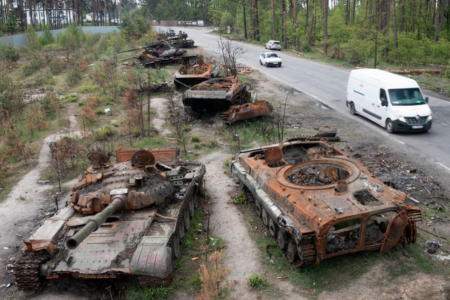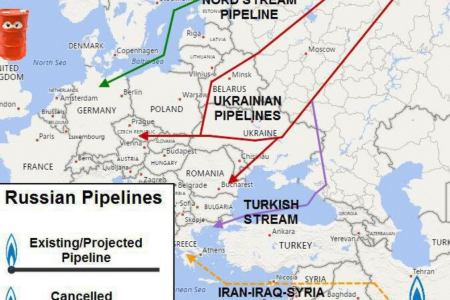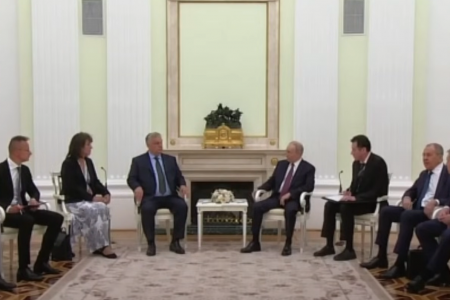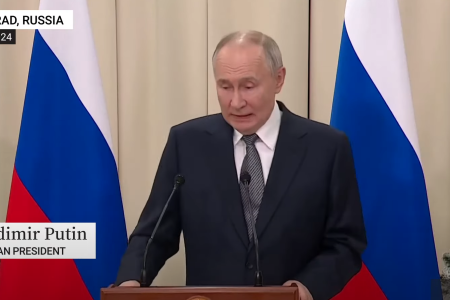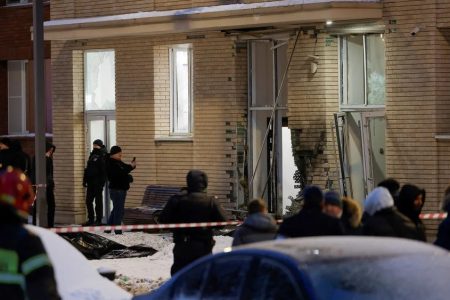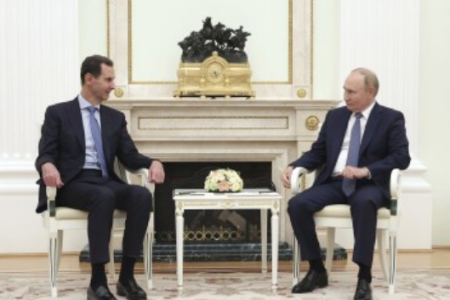
Defend the Defenders, Press Release, January 3, 2022
For immediate release
According to Defend the Defenders’ statistics, as of December 31, 2021, Vietnam’s authoritarian regime is holding at least 251 prisoners of conscience in prisons or other forms of detention. The number does not include Le Anh Hung (m) who is forcibly committed in mental hospitals without judicial process. The list includes Australian citizen Chau Van Kham (m) who has been found guilty of terrorism under Article 113 of Vietnam’s Criminal Code.
As many as 23 of the prisoners of conscience identified by Defend the Defenders are women human rights defenders (WHRDs).
In total, 181 people, or 72.2% of the list, are from the Kinh ethnic majority. The second-largest ethnic grouping on the list is Montagnards, a loose set of religious and ethnic minorities who live in the mountains of the Central Highlands. They account for 62 people or 24.6% of those on the list. There are eight prisoners of conscience from the Hmong ethnic minority and two on the list are Khmer Krom.
Bloggers, lawyers, unionists, land rights activists, political dissidents, and followers of non-registered minority religions have been arrested and detained for peacefully exercising their internationally and constitutionally protected rights, principally the right to freedoms of expression, peaceful assembly, and religion or belief. The list does not include individuals who have engaged in or advocated violence.
Vietnam still holds 35 activists in pre-trial detention, six of them were arrested in 2018-2019, nine in 2020, and the remaining 20 were detained in 2021. Among them is prominent human rights defender Nguyen Thuy Hanh, who has been charged with “conducting anti-state propaganda” under Article 117 of the Criminal Code, and independent Mai Phan Loi, who is probed for tax evasion.
There are 216 who have been convicted – mostly of political crimes under Articles 79, 87, and 88 of the1999 Penal Code or Article 109, 117, and 331 in the 2015 Criminal Code.
The total number includes:
– 47 activists convicted or charged with subversion (Article 79 of 1999 Penal Code or Article 109 in the 2015 Criminal Code);
– 61 activists convicted or charged with “conducting anti-state propaganda” (Article 88 of the 1999 Penal Code or Article 117 of the 2015 Criminal Code);
– 56 people from ethnic minorities were convicted of undermining the national unity policy (Article 87 of the 1999 Penal Code or Article 116 of the 2015 Criminal Code);
– 28 activists were convicted or charged with “abusing democratic freedom” (Article 258 of the 1999 Penal Code or Article 331 of the 2015 Criminal Code);
– Nine activists were convicted of “disruption of security” under Article 118 of the 2015 Criminal Code;
– Ten individuals were convicted of or charged with “disrupting public orders” (under Article 245 of the 1999 Penal Code or Article 318 of the 2015 Criminal Code) for their peaceful activities. Seven of them were imprisoned for participating or being suspected of planning to participate in the mass demonstrations in mid-June 2018 and their aftermath;
– Three activists Chau Van Kham (male, Vietnamese Australian), Nguyen Van Vien (m), and Tran Van Quyen (m) were convicted of “terrorism” under Article 113 of the 2015 Criminal Code.
– The charges for 13 individuals are unknown, including three Montagnards followers of the Ha Mon sect arrested on March 19 last year.
Vietnam is among the world’s biggest prisons for journalists and Facebookers, holding 43 of them in police custody, according to the Paris-based Reporters Without Borders (RSF)’s report released on December 16. The New York-based Committee to Protect Journalists (CPJ) has also listed Vietnam among the global biggest prisons for journalists with 23 journalists being imprisoned.
Background
In late January 2021, the ruling Communist Party of Vietnam (CPV) conducted its 13th National Congress to elect its new leadership for the next five years. The week-lasting congress re-elected many conservative figures such as incumbent General Secretary Nguyen Phu Trong, Minister of Public Security General To Lam, and former police general Pham Minh Chinh to the 18-member Politburo, the most powerful body of the regime. In April-May, the authoritarian regime carried out the administrative formation for the next five years including the presidency and the government as well as the general election for the rubber-stamp legislative body called National Assembly and People’s Councils at provincial, district, and communal levels. Later in July, the National Assembly formally approved the presidency, the government and other state agencies already decided by the party while the People’s Councils at the provincial, district, and communal levels approve leadership of the respective local agencies.
During the preparation of the party’s events and after the formation of the new leadership at the national and local levels, the regime tightened social orders, intensifying the crackdown on local dissent and bloggers which was started in late 2015.
It seems that the Vietnamese authoritarian regime continues its repression without fearing being punished by the western world after the European Parliament adopted the EU-Vietnam Free Trade Agreement and the EU-Vietnam Investment Protection Agreement in March last year, just two months after Hanoi sent thousands of riot policemen to Dong Tam commune to launch a blood attack on the local land petitioners in which local spiritual leader Le Dinh Kinh was shot to death and many of his relatives, as well as many other villagers, were beaten and detained. In addition, the US administration of President Donald Trump who paid no attention to human rights issues resigned after the loss of the billionaires in the presidential election in November 2020 while newly-elected President Joe Biden has little time for international issues but to focus on the domestic problems. Moreover, the administration of President Biden attaches importance to a closer partnership with Vietnam’s authoritarian regime due to its geopolitical value in the fight between the US and China is the leading global position.
The Covid-19 pandemic which started in early 2020, continues to spread worldwide in 2021, causing the international community to focus on dealing with the deadly disease and pay less attention to Vietnam’s human rights violations.
Given the international situation and the Covid-19 infection at home, Vietnam’s authoritarian regime feels free to violate the basic human rights of the local people to prevent the formation of local opposition and ensure its absolute power.
Arrest in 2021
Between January 1 and December 31, Vietnam arrested 27 activists and bloggers (see details in Appendix 1). As many as 12 activists were charged with “conducting anti-state propaganda” and among them are prominent human rights defender Nguyen Thuy Hanh and bloggers Le Van Dung and Bui Van Thuan. The number also includes blogger Le Trong Hung and Tran Quoc Khanh who announced their intention to take part in the parliament election on May 21 as independent candidates but were arrested a few months before the polls took place. Handicap blogger Dinh Van Hai was also arrested and charged with this accusation.
As many as 13 others were arrested on the allegation of “abusing democratic freedom” under Article 331 of the Criminal Code. Among them is well-known blogger Truong Chau Huu Danh who has a number of articles regarding the legal miscarriage of Ho Duy Hai who was unfairly sentenced to death in the double murder case in Cau Voi post office one decade ago.
In many cases, including the cases of Pham Doan Trang (f), Chung Hoang Chuong (m), Nguyen Van Nghiem (m), Le Van Dung (m), Dinh Thi Thu Thuy (f), Do Nam Trung (m), Dinh Van Hai (m), Le Trong Hung (m), Le Chi Thanh (m), and Tran Quoc Khanh (m), etc., the UN Working Group for Arbitrary Detention has issued its resolutions saying their arrests were arbitrary and urged Vietnam’s authoritarian regime to free them immediately and unconditionally.
Convictions in 2021
In 2021, Vietnam’s authoritarian regime convicted 31 activists and bloggers (see details in Appendix 2). Twenty-two were found guilty of “conducting anti-state propaganda” and sentenced to between five and 15 years in prison. Among them are a prominent political blogger and world-recognized human rights advocate Pham Doan Trang (f), President of of the unregistered professional group Independent Journalists Association of Vietnam (IJAVN) Dr. Pham Chi Dung (m), and his deputy Nguyen Tuong Thuy (m), three recipients of Vietnam Human Rights Award 2021 named Can Thi Theu (f) and her two sons Trinh Ba Phuong (m) and Trinh Ba Tu (m). In the first instance-hearing in January, Dr. Dung was given 15 years in prison- the toughest imprisonment for the charge of “conducting anti-state propaganda” so far while his deputy was given 11 years in prison. In mid-December, Ms. Trang was sentenced to nine years in prison while Mr. Phuong was given ten years in prison and Mr. Tu and his mother Theu were sentenced to eights years in prison and three years of probation each.
The second large group of eight bloggers was convicted of “abusing democratic freedom” under Article 331 of the Criminal Code and sentenced to between two and five years in prison. Among them were members of Báo Sạch (Clean Newspaper) led by Mr. Truong Chau Huu Danh (m).
In all the cases, there are serious violations of human rights as well as the Criminal Procedure Code in all steps from detention to prosecution. The defendants were held incommunicado for months and permitted to meet with their lawyers in the short time before their trial. All the trials were extremely short in which the defendants’ relatives were not allowed to be present in the courtrooms while foreign diplomats were observing the hearings in adjacent rooms via TV screens. In some cases, including the trials against land rights activists and human rights defenders Can Thi Theu and her sons, their relatives were detained and held in a local police station on the trial day. In all cases, the judges ignored the defense of the defendants and their lawyers.
Mistreatment in prison
Vietnam’s Ministry of Public Security continues its policy to keep prisoners, especially prisoners of conscience, under hard living conditions in a bid to punish them for their non-violent activities but harmful for the communist regime and break their mental strength. Along with sending prisoners of conscience to prisons far from their families, it allows authorities in the prisons and the temporary detention centers to apply other psychological measures to make the life of jailed activists harder, such as denying them their rights to regular meetings with their families and receiving additional food and medicines from their relatives, placing them in solitary cells or isolated areas, or forcing them to work hard without proper protective equipment. It also puts added psychological and financial trauma on the family members.
Due to the Covid-19 outbreak across Vietnam, the families of prisoners of conscience have not been allowed to conduct prison visits nor send foodstuff for them but send money so jailed activists can purchase additional food and stuff at prisons’ canteens at prices much higher than the market prices while the goods’ quality is under question. Most of the convicted prisoners of conscience are allowed to make a ten-minute call to their families every month.
The family of brave human rights defenders and democracy campaigners Can Thi Theu was alarmed that she has been held in a tiny cell without a fan during the hot summer in the temporary detention center operated by the Hoa Binh province’s Police Department. It is worth noting that Mr. Dao Quang Thuc was treated the same way by the same detention center and he died in 2019 shortly after being transferred to the Gia Trung prison camp in the Central Highlands province of Gia Lai.
Also due to hard-living conditions and lack of proper medical treatment, Mr. Huynh Huu Dat, who served his 13-year imprisonment for subversion, has passed away in Xuan Loc Prison camp after months of fighting against rectal cancer and cirrhosis.
Many former prisoners of conscience reported that most prisoners of conscience from ethnic minorities have no family visits and their lives in prisons are very hard since they rely on prison’s supply only.
The family of prisoner of conscience Trinh Ba Phuong said according to the minute of his trial on December 15, he had been tortured by four police officers during pre-trial detention in the Temporary detention center No.1 under the authority of the Hanoi Police Department. The perpetrators reportedly beat him at his genital part and other parts of his body.
Along with persecuting prisoners of conscience, authorities in some localities also harass their families. After arresting former prisoner of conscience Can Thi Theu and her two sons Trinh Ba Phuong and Trinh Ba Tu on the charge of “conducting anti-state propaganda” in late June, police in Hanoi and Hoa Binh continuously intimidate her family, summoning her husband Trinh Ba Khiem who is also a former prisoner of conscience and Mr. Phuong’s wife Do Thi Thu to police stations for interrogating about the detainees’ activities.
Many former prisoners of conscience reported that most of the prisoners of conscience from ethnic minorities have no family visits and their lives in prisons are very hard since they rely on prison’s supply only.
Release from prison in 2021
Between January 1 and December 31, 39 prisoners of conscience were released or expected to complete their imprisonments (see details in Appendix No. 3). Defend the Defenders has no information which would confirm the release of most of them. However, Defend the Defenders still excludes their names from its list of prisoners of conscience.
In October, after months of medical treatment outside prison, prisoner of conscience Ngo Hao was allowed to travel to Finland where he lives in exile. The authoritarian regime suspended his 15-year imprisonment last year and the 73-year-old political prisoner was permitted to return home for treating several severe diseases.
=============
The term “prisoner of conscience” (POC) was coined by Peter Benenson in the 1960s. It refers to any individual “imprisoned for his/her political, religious or conscientiously held beliefs, ethnic origin, sex, color, language, national or social origin, economic status, birth, sexual orientation or another status who have not used violence or advocated violence or hatred.”
Defend the Defenders is Vietnam’s independent non-profit organization working to promote human and civil rights in the Southeast Asian nation. It has a network of dozens of human rights defenders across the nation who report human rights abuse in their areas.
Vietnam, January 3, 2022
Director: Vu Quoc Ngu
Email: vietnamhumanrightsdefenders@gmail.com
Website: vietnamhumanrightsdefenders.net
Appendix 1: List of arrested activists and bloggers in 2021
Appendix 2: List of activists and bloggers convicted in 2021
Appendix 3: List of Prisoners of Conscience Released in 2021
Appendix 4: List of Prisoners of Conscience as of December 31, 2020
| Appendix 1: List of Activists and bloggers Arrested in 2021
|
| No. |
Name |
DOB |
Residence |
Day of arrest |
Charge (s) |
| 1 |
Phan Bùi Bảo Thy |
1971 |
Quảng Trị |
10/O2/2021 |
Article 331 |
| 2 |
Lê Anh Dũng |
1965 |
Quảng Trị |
10/O2/2021 |
331 |
| 3 |
Trần Quốc Khánh |
1960 |
Ninh Bình |
10/O3/2021 |
117 |
| 4 |
Nguyễn Duy Hướng |
1987 |
Nghệ An |
22/3/2021 |
117 |
| 5 |
Lê Trọng Hùng |
1979 |
Hanoi |
27/3/2021 |
117 |
| 6 |
Nguyễn Hoài Nam |
1973 |
HCM City |
2-Apr-21 |
331 |
| 7 |
Nguyễn Thuý Hạnh (f) |
1963 |
Hanoi |
7-Apr-21 |
117 |
| 8 |
Nguyễn Thanh Nhã |
1980 |
|
20-Apr-21 |
331 |
| 9 |
Đoàn Kiên Giang |
1985 |
|
20-Apr-21 |
331 |
| 10 |
Nguyễn Phước Trung Bảo |
1982 |
|
20-Apr-21 |
331 |
| 11 |
Lê Thế Thắng |
1982 |
Hà Nội |
|
331 |
| 12 |
Nguyễn Bảo Tiên |
1986 |
Phú Yên |
5-May-21 |
117 |
| 13 |
Trần Ngọc Sơn |
1965 |
Vĩnh Phúc |
20/5/2021 |
331 |
| 14 |
Bạch Văn Hiền |
1987 |
Quảng Ngãi |
June 30, 1021 |
331 |
| 15 |
Phùng Thanh Tuyến |
1983 |
Quảng Ngãi |
June 30, 1021 |
331 |
| 16 |
Lê Trung Thu |
1980 |
Quảng Ngãi |
June 30, 1021 |
331 |
| 17 |
Lê Văn Dũng |
1970 |
Hà Nội |
June 30, 1021 |
117 |
| 18 |
Đỗ Nam Trung |
1981 |
Hà Nội |
6-Jul-21 |
117 |
| 19 |
Mai Phan Lợi |
1971 |
Hà Nội |
2-Jul-21 |
200 |
| 20 |
Bùi Văn Thuận |
1981 |
Thanh Hoa |
29-Aug-21 |
117 |
| 21 |
Trần Hoàng Huấn |
1988 |
Tiền Giang |
10-Aug-21 |
117 |
| 22 |
Nguyễn Duy Linh |
1976 |
Bến Tre |
14-Sep-21 |
117 |
| 23 |
Y Wo nie |
1970 |
Dak Lak |
20-Sep-21 |
331 |
| 24 |
Phùng Thị Nga (f) |
1981 |
Vĩnh Phúc |
4-Oct-21 |
331 |
| 25 |
Võ Hoàng Thơ |
1985 |
Cần Thơ |
6-Oct-21 |
331 |
| 26 |
Đinh Văn Hải |
1974 |
Lâm Đồng |
7-Oct-21 |
117 |
| 27 |
Nguyễn Trí Doãn |
1979 |
Khánh Hoà |
Jan-21 |
117 |
|
|
|
| Appendix 2: List of activists and bloggers convicted in 2021
|
| No. |
Name |
DOB |
Residence |
Day of arrest |
Charge (s) |
Trial date |
Sentence |
| Jail (year) |
Probation (years) |
| 1 |
Lê Hữu Minh Tuấn |
1989 |
Khánh Hoà |
12-Jun-20 |
Art. 117 |
5-Jan-21 |
11 |
3 |
| 2 |
Nguyễn Tường Thuỵ |
1950 |
Hanoi |
23-May-20 |
117 |
5-Jan-21 |
11 |
3 |
| 3 |
Phạm Chí Dũng |
1966 |
HCM City |
21-Nov-19 |
117 |
5-Jan-21 |
15 |
3 |
| 4 |
Nguyễn Văn Nhanh |
1992 |
Đồng Nai |
|
155 |
7-Jan-21 |
1 |
|
| 5 |
Đinh Thị Thu Thuỷ |
1982 |
Hậu Giang |
18-Apr-20 |
117 |
20-Jan-21 |
7 |
|
| 6 |
Nguyễn Thị Cẩm Thuý (f) |
1976 |
Khánh Hoà |
24-Jun-20 |
117 |
30-Mar-21 |
9 |
3 |
| 7 |
Ngô Thị Hà Phương (f) |
1996 |
Khánh Hoà |
|
117 |
30-Mar-21 |
7 |
|
| 8 |
Lê Viết Hòa |
1962 |
Khánh Hoà |
|
117 |
30-Mar-21 |
5 |
|
| 9 |
Vũ Tiến Chi |
1966 |
Lâm Đồng |
24-Jun-20 |
117 |
30-Mar-21 |
10 |
3 |
| 10 |
Lê Văn Hải |
1967 |
Bình Định |
O9/2020 |
331 |
31-Mar-21 |
4 |
|
| 11 |
Lê Thị Bình (f) |
1976 |
Cần Thơ |
22-Dec-20 |
331 |
22-Apr-21 |
2 |
|
| 12 |
Trần Thị Tuyết Diệu (f) |
1988 |
Phú Yên |
|
117 |
23-Apr-21 |
8 |
|
| 13 |
Trịnh Bá Tư |
1989 |
Hanoi |
24-Jun-21 |
117 |
5-May-21 |
8 |
3 |
| 14 |
Cấn Thị Thêu (f) |
1962 |
Hanoi |
24-Jun-21 |
117 |
5-May-21 |
8 |
3 |
| 15 |
Đặng Hoàng Minh |
1993 |
Hậu Giang |
|
117 |
2-Jun-21 |
7 |
2 |
| 16 |
Cao Văn Dũng |
1968 |
Quảng Ngãi |
27-Nov-20 |
117 |
9-Jun-21 |
9 |
3 |
| 17 |
Pham Thanh |
1952 |
Hanoi |
|
117 |
9-Jul-21 |
5.5 |
5 |
| 18 |
Trần Hoàng Minh |
1990 |
Hanoi |
1-Sep-20 |
331 |
20-Jul-21 |
5 |
|
| 19 |
Nguyễn Văn Lâm |
1970 |
Nghệ An |
|
117 |
20-Jul-21 |
9 |
3 |
| 20 |
Trần Quốc Khánh |
1960 |
Ninh Bình |
|
117 |
Octboer 28, 2021 |
6.5 |
2 |
| 21 |
Nguyễn Trí Doãn |
1979 |
Khánh Hoà |
1-Jan-21 |
117 |
15-Nov-21 |
7 |
3 |
| 22 |
Trương Châu Hữu Danh |
1982 |
|
16/12/2020 |
331 |
Octber 28, 2021 |
4 |
|
| 23 |
Đoàn Kiên Giang |
1985 |
|
20-Apr-21 |
331 |
Octber 28, 2021 |
3 |
|
| 24 |
Lê Thế Thắng |
1982 |
|
|
331 |
Octber 28, 2021 |
3 |
|
| 25 |
Nguyễn Thanh Nhã |
1980 |
|
20-Apr-21 |
331 |
Octber 28, 2021 |
2 |
|
| 26 |
Nguyễn Phước Trung Bảo |
1982 |
|
20-Apr-21 |
331 |
Octber 28, 2021 |
2 |
|
| 27 |
Pham Doan Trang (f) |
1978 |
Hanoi |
6-Oct-20 |
88 |
14-Dec-21 |
9 |
|
| 28 |
Trinh Ba phuong |
|
Hanoi |
24-Jun-20 |
117 |
15-Dec-21 |
10 |
5 |
| 29 |
Nguyen Thi Tam (f) |
1972 |
Hanoi |
24-Jun-20 |
117 |
15-Dec-21 |
6 |
3 |
| 30 |
Do Nam Trung |
1981 |
Nam Định |
7-Jun-21 |
117 |
16-Dec-21 |
10 |
4 |
| 31 |
Lê Trọng Hùng |
1979 |
Hanoi |
27-Mar-21 |
117 |
31-Dec-21 |
5 |
5 |
| |
Total |
|
|
|
|
|
209 |
47 |
| Appendix 3: List of released prisoners of conscience |
| No. |
Name |
DOB |
Day of arrest |
Charge(s) |
Sentence (years) |
Day of Release |
| 1 |
Nguyễn Quang Tuy |
|
O9/2/2019 |
330 |
2 |
Sep-20 |
| 2 |
Hà Văn Nam |
1981 |
5-Mar-19 |
318 |
2.5 |
Feb 4: 7-month sentence reduction |
| 3 |
Bùi Hiếu Võ |
1962 |
O3/2017 |
88 |
4.5 |
N/A, expected on Feb 17 |
| 4 |
Đoàn Thị Hồng (f) |
1983 |
O2/9/2018 |
118 |
2.5 years |
9-Mar-21 |
| 5 |
Bùi Mạnh Tiến |
|
16/10/2019 |
318 |
1.25 |
N/A, expected in January |
| 6 |
Nguyễn Tuấn Quân |
1984 |
5-Mar-19 |
318 |
2 |
N/A, expected on March 5 |
| 7 |
Vũ Văn Hà |
1990 |
5-Mar-19 |
318 |
2 |
N/A, expected on March 5 |
| 8 |
Ngô Quang Hùng |
1993 |
5-Mar-19 |
318 |
2 |
N/A, expected on March 5 |
| 9 |
Trương Thị Thu Hằng (f) |
1984 |
16/O2/2017 |
88 |
4 |
N/A, expected on Feb 16 |
| 10 |
Ma Phung Ngoc Phu (f) |
1992 |
10-Apr-20 |
331 |
0.75 |
N/A, expected on January 10 |
| 11 |
Nguyễn Hữu Mỹ |
1973 |
|
331 |
1 |
N/A |
| 12 |
Chung Hoàng Chương |
1977 |
1-Jan-20 |
331 |
1.5 |
10/6/21 |
| 13 |
Nguyễn Thị Huệ (f) |
1968 |
2-Mar-19 |
331 |
2.5 |
N/A, expected on September 2, 2021 |
| 14 |
Huỳnh Thị Kim Quyên (f) |
1979 |
30/O4/2017 |
88 |
4 |
N/A, expected on April 30, 2021 |
| 15 |
Nguyễn Ngọc Quy |
1992 |
30/O4/2017 |
88 |
4 |
N/A, expected on April 30, 2021 |
| 16 |
Bùi Mạnh Đồng |
1978 |
O9/2018 |
331 |
2.5 |
N/A, expected in September 2021 |
| 17 |
Nguyễn Hoàng Nam |
1982 |
26/6/2017 |
245 |
4 |
N/A, expected on Deceember 26, 2021 |
| 18 |
Ngô Văn Đạt |
1989 |
1O/6/2018 |
318 |
3 |
N/A, expected on December 10, 2021 |
| 19 |
Nguyễn Chương |
1995 |
1O/6/2018 |
318 |
3 |
N/A, expected on December 10, 2021 |
| 20 |
Ngô Đức Thuận |
2000 |
1O/6/2018 |
318 |
3 |
N/A, expected on December 10, 2021 |
| 21 |
Nguyễn Văn Tuấn |
1988 |
1O/6/2018 |
318 |
3 |
N/A, expected on December 10, 2021 |
| 22 |
Huỳnh Anh Khoa |
1982 |
13-Jun-20 |
331 |
1.25 |
13-Sep-21 |
| 23 |
Trần Đình Sang |
1980 |
O9/4/2019 |
330 |
2 |
N/A, expected on April 9, 2021 |
| 24 |
Lê Văn Khiển |
1990 |
5-Mar-19 |
318 |
2.5 |
N/A, expected on September 5, 2021 |
| 25 |
Nguyễn Tấn An |
1992 |
30/O4/2017 |
88 |
5 |
Nov-21 |
| 26 |
Phan Thanh Tường |
1987 |
28/O2/2012 |
79 (109) |
10 |
2020 |
| 27 |
Đỗ Thị Hồng (f) |
1957 |
14/O2/2012 |
79 (109) |
13 |
2020 |
| 28 |
Nguyễn Đình Khue |
1978 |
25/4/2019 |
118 |
2.5 |
N/A, expected on October 25, 2021 |
| 29 |
Ngô Xuân Thành |
1970 |
25/4/2019 |
118 |
2.5 |
N/A, expected on October 25, 2021 |
| 30 |
Nguyễn Tấn Vũ |
2000 |
1O/6/2018 |
318 |
3.5 |
N/A, expected on December 10, 2021 |
| 31 |
Ho Van Tam |
1989 |
1O/6/2018 |
318 |
3.5 |
N/A, expected on December 10, 2021 |
| 32 |
Nguyen Van Hung |
1995 |
1O/6/2018 |
318 |
3.5 |
N/A, expected on December 10, 2021 |
| 33 |
Nguyễn Văn Hiếu |
1998 |
1O/6/2018 |
318 |
3.5 |
N/A, expected on December 10, 2021 |
| 34 |
Trần Văn Xi |
1995 |
1O/6/2018 |
318 |
3.5 |
N/A, expected on December 10, 2021 |
| 35 |
Phạm Văn Sang |
2002 |
1O/6/2018 |
318 |
3.5 |
N/A, expected on December 10, 2021 |
| 36 |
Đỗ Văn Ngọc |
1996 |
1O/6/2018 |
318 |
3.5 |
N/A, expected on December 10, 2021 |
| 37 |
Nguyễn Đăng Thương |
1957 |
13-Jun-20 |
331 |
1.5 |
N/A, expected on December 13, 2021 |
| 38 |
Ngô Hào |
1948 |
Feb-13 |
79 |
15 |
October 2021, allowed to live in exile in Finland |
|
|
|
|
|
|
|
|
| Appendix 4: List of prisoners of conscience as of December 31, 2021 |
| No. |
Names |
DoB |
Arrest date |
Charge |
Sentence (years) |
Detention facilities |
| 1 |
Nguyễn Quang Khải |
1969 |
20-Oct-20 |
337 |
Pre-trial detention |
Đồng Nai temporary detention facility |
| 2 |
Phan Thị Thanh Hồng (f) |
1969 |
21-Jun-20 |
318 |
Pre-trial detention |
HCM City’s temporary detention center |
| 3 |
Phạm Đình Quý |
1981 |
25-Sep-20 |
156 |
Pre-trial detention |
Dak Lak temporary detention center |
| 4 |
Hoàng Minh Tuấn |
1980 |
25-Sep-20 |
156 |
Pre-trial detention |
Dak Lak temporary detention center |
| 5 |
Y Pum Nie |
1964 |
10/O4/2018 |
116 |
Pre-trial detention |
HCM City’s temporary detention center |
| 6 |
Nguyễn Bá Mạnh |
1987 |
20/3/2019 |
288 |
Pre-trial detention |
Bac Ninh province’s temporary detention center |
| 7 |
Võ Hoàng Thơ |
1985 |
6-Oct-21 |
331 |
Pre-trial detention |
Can Thơ City’s temporary detention center |
| 8 |
Phùng Thị Nga (f) |
1981 |
4-Oct-21 |
331 |
Pre-trial detention |
Vinh Phuc province’s temporary detention center |
| 9 |
Y Wo Nie |
1970 |
20-Sep-21 |
331 |
Pre-trial detention |
Dak Lak province’s temporary detention center |
| 10 |
Bạch Văn Hiền |
1987 |
June 30, 1021 |
331 |
Pre-trial detention |
Quang Ngai province’s temporary detention center |
| 11 |
Phùng Thanh Tuyến |
1983 |
June 30, 1021 |
331 |
Pre-trial detention |
Quang Ngai province’s temporary detention center |
| 12 |
Lê Trung Thu |
1980 |
June 30, 1021 |
331 |
Pre-trial detention |
Quang Ngai province’s temporary detention center |
| 13 |
Trần Ngọc Sơn |
1965 |
20/5/2021 |
331 |
Pre-trial detention |
Vinh Phuc temporary detention center |
| 14 |
Nguyễn Hoài Nam |
1973 |
2-Apr-21 |
331 |
Pre-trial detention |
HCM City’s temporary detention center |
| 15 |
Phan Bùi Bảo Thy |
1971 |
10/O2/2021 |
331 |
Pre-trial detention |
Quang Trị province temporary detention center |
| 16 |
Lê Anh Dũng |
1965 |
10/O2/2021 |
331 |
Pre-trial detention |
Quang Trị province temporary detention center |
| 17 |
Lê Văn Hải |
1966 |
18-Sep-20 |
331 |
Pre-trial detention |
Binh Dinh province temporary detention center |
| 18 |
Trịnh Viết Bảng |
1959 |
13/5/2019 |
331 |
Pre-trial detention |
Bac Ninh province’s temporary detention center |
| 19 |
Nguyễn Duy Sơn |
1981 |
O8/5/2018 |
331 |
Pre-trial detention |
Thanh Hoa province’s temporary detention center |
| 20 |
Nguyễn Văn Trường |
1976 |
O9/2/2018 |
331 |
Pre-trial detention |
Thai Nguyen province’s temporary detention center |
| 21 |
Trần Văn Tú |
1992 |
|
331 |
Pre-trial detention |
Quang Ngai province’s temporary detention center |
| 22 |
Đinh Văn Hải |
1974 |
7-Oct-21 |
117 |
Pre-trial detention |
Lam Dong province’s temporary detention center |
| 23 |
Nguyễn Duy Linh |
1976 |
14-Sep-21 |
117 |
Pre-trial detention |
Ben Tre province’s temporary detention center |
| 24 |
Bui Van Thuan |
1981 |
29-Aug-21 |
117 |
Pre-trial detention |
Thanh Hoa province’s temporary detention center |
| 25 |
Trần Hoàng Huấn |
1988 |
10-Aug-21 |
117 |
Pre-trial detention |
Tien Giang province’s temporary detention center |
| 26 |
Lê Văn Dũng |
1970 |
30-Jun-21 |
117 |
Pre-trial detention |
Hanoi temporary detention center |
| 27 |
Nguyễn Bảo Tiên |
1986 |
5-May-21 |
117 |
Pre-trial detention |
Phu Yen temporary detention center |
| 28 |
Nguyễn Thuý Hạnh (f) |
1963 |
7-Apr-21 |
117 |
Pre-trial detention |
Hanoi temporary detention center |
| 29 |
Nguyễn Duy Hướng |
1987 |
22-Mar-21 |
117 |
Pre-trial detention |
Nghe An province temporary detention center |
| 30 |
Đinh Quang Phú |
1973 |
9-Jan-20 |
117 |
Pre-trial detention |
Dak Nong temporary detention center |
| 31 |
Nguyễn Văn Quang |
1987 |
12/O6/2018 |
117 |
Pre-trial detention |
Thanh Hoa province’s temporary detention center |
| 32 |
Mai Phan Lợi |
1971 |
2-Jul-21 |
200 |
Pre-trial detention |
Hanoi temporary detention center |
| 33 |
Jư |
1964 |
19-Mar-20 |
Unknown |
Pre-trial detention |
Gia Lai province’s temporary detention center |
| 34 |
Lup |
1972 |
19-Mar-20 |
Unknown |
Pre-trial detention |
Gia Lai province’s temporary detention center |
| 35 |
Kưnh |
1992 |
19-Mar-20 |
Unknown |
Pre-trial detention |
Gia Lai province’s temporary detention center |
| 36 |
Nguyễn Văn Nhanh |
1992 |
|
155 |
1 |
Dong Nai province’s temporary detention center |
| 37 |
Lê Đình Công |
1964 |
9-Jan-20 |
123 |
death |
No. 2 temporary detention center, Hanoi |
| 38 |
Lê Đình Chức |
1980 |
9-Jan-20 |
123 |
death |
No. 2 temporary detention center, Hanoi |
| 39 |
Bùi Viết Hiếu |
1943 |
9-Jan-20 |
123 |
16 |
No. 2 temporary detention center, Hanoi |
| 40 |
Nguyễn Văn Tuyến |
1974 |
9-Jan-20 |
123 |
12 |
No. 2 temporary detention center, Hanoi |
| 41 |
Lê Đình Doanh |
1988 |
9-Jan-20 |
123 |
life impr. |
No. 2 temporary detention center, Hanoi |
| 42 |
Nguyễn Quốc Tiến |
1980 |
9-Jan-20 |
123 |
13 |
No. 2 temporary detention center, Hanoi |
| 43 |
Nguyễn Văn Quân |
1980 |
9-Jan-20 |
330 |
5 |
No. 2 temporary detention center, Hanoi |
| 44 |
Lê Đình Uy |
1993 |
9-Jan-20 |
330 |
5 |
No. 2 temporary detention center, Hanoi |
| 45 |
Lê Đình Quang |
1984 |
9-Jan-20 |
330 |
5 |
No. 2 temporary detention center, Hanoi |
| 46 |
Bùi Thị Nối (f) |
1958 |
9-Jan-20 |
330 |
6 |
No. 2 temporary detention center, Hanoi |
| 47 |
Bùi Văn Tiến |
1979 |
9-Jan-20 |
330 |
5 |
No. 2 temporary detention center, Hanoi |
| 48 |
Nguyễn Văn Duệ |
1962 |
9-Jan-20 |
330 |
3 |
No. 2 temporary detention center, Hanoi |
| 49 |
Bùi Văn Tuấn |
1991 |
9-Jan-20 |
330 |
3 |
No. 2 temporary detention center, Hanoi |
| 50 |
Trịnh Văn Hải |
1988 |
9-Jan-20 |
330 |
3 |
No. 2 temporary detention center, Hanoi |
| 51 |
Nguyễn Thị Ngọc Hạnh (f) |
1976 |
O3/9/2018 |
118 |
8 years |
An Phuoc Prison camp in Binh Duong |
| 52 |
Hồ Đình Cương |
N/A |
O4/9/2018 |
118 |
4.5 years |
Xuan Loc Prison camp in Dong Nai province |
| 53 |
Ngô Văn Dũng |
1969 |
O4/9/2018 |
118 |
5 years |
An Phuoc Prison camp in Binh Duong |
| 54 |
Lê Quý Lộc |
1976 |
11/O6/2018 |
118 |
5 years |
An Phuoc Prison camp in Binh Duong |
| 55 |
Hoàng Thị Thu Vang (f) |
1966 |
O3/9/2018 |
118 |
7 years |
An Phuoc Prison camp in Binh Duong |
| 56 |
Đỗ Thế Hoá |
1968 |
O2/9/2018 |
118 |
5 years |
An Phuoc Prison camp in Binh Duong |
| 57 |
Trần Thanh Phương |
1975 |
O2/9/2018 |
118 |
3.5 years |
An Phuoc Prison camp in Binh Duong |
| 58 |
Đoàn Viết Hoan |
1984 |
25/4/2019 |
118 |
3 |
Dong Nai province’s temporary detention center |
| 59 |
Võ Thường Trung |
1977 |
25/4/2019 |
118 |
3 |
Dong Nai province’s temporary detention center |
| 60 |
Trương Hữu Lộc |
1963 |
11/O6/2018 |
118 |
8 |
Gia Trung Prison camp in Gia Lai |
| 61 |
Chau Van Kham |
1949 |
13/1/2019 |
113 |
12 |
Thu Duc prison camp in Binh Thuan province |
| 62 |
Nguyễn Văn Viễn |
1971 |
13/1/2019 |
113 |
11 |
HCM City’s temporary detention center |
| 63 |
Trần Văn Quyến |
1999 |
23/1/2019 |
113 |
10 |
HCM City’s temporary detention center |
| 64 |
Lê Trọng Hùng |
1979 |
27-Mar-21 |
117 |
5 |
Hanoi temporary detention center |
| 65 |
Nguyễn Thị Tâm (f) |
1972 |
24-Jun-20 |
117 |
6 |
Hanoi temporary detention center |
| 66 |
Trịnh Bá Phương |
1985 |
24-Jun-20 |
117 |
10 |
Hanoi temporary detention center |
| 67 |
Đỗ Nam Trung |
1981 |
6-Jul-21 |
117 |
10 |
Nam Dinh province’s temporary detention center |
| 68 |
Phạm Đoan Trang (f) |
1978 |
6-Oct-20 |
117 |
9 |
Hanoi temporary detention center |
| 69 |
Trần Quốc Khánh |
1960 |
3/10/21 |
117 |
6.5 |
Ninh Binh province’s temporary detention center |
| 70 |
Nguyễn Trí Gioãn |
1979 |
O1/2021 |
117 |
7 |
Khanh Hoa temporary detention center |
| 71 |
Nguyễn Văn Lâm |
1970 |
12-Jul-05 |
117 |
9 |
Nghi Kim temporary detention center, Nghe An province |
| 72 |
Pham Chi Thanh |
1952 |
21-May-20 |
117 |
5.5 |
Ba Sao Prison camp in Ha Nam |
| 73 |
Cao Văn Dũng |
1968 |
27-Nov-20 |
117 |
9 |
Quang Ngai province’s temporary detention center |
| 74 |
Đặng Hoàng Minh |
1968 |
15-Jun-05 |
117 |
7 |
Hậu Giang province’s temporary detention center |
| 75 |
Trịnh Bá Tư |
1989 |
24-Jun-20 |
117 |
8 |
Hoa Binh temporary detention center |
| 76 |
Cấn Thị Thêu (f) |
1962 |
24-Jun-20 |
117 |
8 |
Hoa Binh temporary detention center |
| 77 |
Tran Thi Tuyet Dieu (f) |
1988 |
21-Aug-20 |
117 |
8 |
Phu Yen temporary detention center |
| 78 |
Vũ Tiến Chi |
1966 |
24-Jun-20 |
117 |
10 |
Lam Dong province’s temporary detention center |
| 79 |
Nguyễn Thị Cẩm Thuý (f) |
1976 |
24-Jun-20 |
117 |
9 |
Khanh Hoa temporary detention center |
| 80 |
Ngô Thị Hà Phương (f) |
1996 |
|
117 |
7 |
Khanh Hoa temporary detention center |
| 81 |
Lê Viết Hòa |
1962 |
|
117 |
5 |
Khanh Hoa temporary detention center |
| 82 |
Dinh Thi Thu Thuy (f) |
1982 |
20-Apr-20 |
117 |
7 |
Hau Giang temporary detention center |
| 83 |
Le Huu Minh Tuan |
1989 |
12-Jun-20 |
117 |
11 |
Chi Hoa temporary detention center, HCM City |
| 84 |
Nguyen Tuong Thuy |
1950 |
23-May-20 |
117 |
11 |
An Phuoc Prison camp in Binh Duong |
| 85 |
Phạm Chí Dũng |
1966 |
21-Nov-19 |
117 |
15 |
HCM City’s temporary detention center |
| 86 |
Nguyễn Trung Lĩnh |
1967 |
27/5/2018 |
117 |
12 |
Hanoi temporary detention center |
| 87 |
Nguyễn Quốc Đức Vượng |
1991 |
23-Sep-19 |
117 |
8 |
An Phuoc Prison camp in Binh Duong |
| 88 |
Nguyễn Văn Nghiêm |
1963 |
5-Nov-19 |
117 |
6 |
Ba Sao Prison camp in Ha Nam |
| 89 |
Phan Công Hải |
1996 |
19-Nov-19 |
117 |
5 |
Nghe An province’s temporary detention center |
| 90 |
Lê Văn Phương |
1990 |
26-Oct-18 |
117 |
7 |
Gia Trung Prison camp in Gia Lai |
| 91 |
Trần Thanh Giang |
1971 |
23/4/2019 |
117 |
8 |
An Giang province’s temporary detention center |
| 92 |
Huỳnh Minh Tâm |
1978 |
26/1/2019 |
117 |
9 |
Gia Trung Prison camp in Gia Lai |
| 93 |
Huỳnh Thị Tố Nga (f) |
1983 |
28/1/2019 |
117 |
5 |
An Phuoc Prison camp in Binh Duong |
| 94 |
Nguyễn Chí Vững |
1981 |
23/4/2019 |
117 |
6 |
Bac Lieu province’s temporary detention center |
| 95 |
Phạm Văn Điệp |
1965 |
29/6/2019 |
117 |
9 |
Thanh Hoa province’s temporary detention center |
| 96 |
Nguyễn Năng Tĩnh |
1976 |
29/5/2019 |
117 |
11 |
Prison camp No. 5 in Thanh Hoa province |
| 97 |
Nguyễn Văn Phước |
1979 |
10/12/2O18 |
117 |
5 |
An Giang province’s temporary detention center |
| 98 |
Nguyễn Ngọc Ánh |
1980 |
30/O8/2018 |
117 |
6 |
Xuan Loc Prison camp in Dong Nai (K2) |
| 99 |
Huỳnh Trương Ca |
1971 |
O4/9/2018 |
117 |
5.5 |
Xuan Loc Prison camp in Dong Nai (K2) |
| 100 |
Dương Thị Lanh (f) |
1983 |
28/1/2019 |
117 |
8 |
Dac Nong province’s temporary detention center |
| 101 |
Huỳnh Đắc Tuý |
1976 |
22/2/2019 |
117 |
6 |
Quang Ngai province’s temporary detention center |
| 102 |
Nguyễn Văn Công Em |
1971 |
28/2/2019 |
117 |
5 |
Ben Tre province’s temporary detention center |
| 103 |
Vũ Thị Dung (f) |
1965 |
13/10/2018 |
117 |
6 |
Trại giam An Phước (Bình Dương) |
| 104 |
Nguyễn Thị Ngọc Sương (f) |
1968 |
13/10/2018 |
117 |
5 |
Trại giam An Phước (Bình Dương) |
| 105 |
Nguyễn Đình Thành |
1991 |
O8/6/2018 |
117 |
7 |
Binh Duong province’s temporary detention center |
| 106 |
Nguyễn Viết Dũng |
1976 |
27/9/2017 |
88 |
6 |
Ba Sao Prison camp in Ha Nam |
| 107 |
Trần Hoàng Phúc |
1994 |
29-Jun-17 |
88 |
6 |
An Phuoc Prison camp in Binh Duong |
| 108 |
Vũ Quang Thuận |
1966 |
O2/3/2017 |
88 |
8 |
Ba Sao Prison camp in Ha Nam |
| 109 |
Nguyễn Văn Điển |
1980 |
O2/3/2017 |
88 |
6.5 |
Prison camp No. 5 in Thanh Hoa |
| 110 |
Phan Kim Khánh |
1983 |
21/3/2017 |
88 |
6 |
Ba Sao Prison camp in Ha Nam |
| 111 |
Nguyễn Văn Hoá |
1995 |
11/O1/2017 |
88 |
7 |
An Diem Prison camp in Quang Nam |
| 112 |
Pham Long Dai |
1996 |
16/O2/2017 |
88 |
6 |
Unknown |
| 113 |
Doan Thi Bich Thuy (f) |
1972 |
16/O2/2017 |
88 |
5 |
Unknown |
| 114 |
Tran Duc Thach |
1952 |
23-Apr-20 |
109 |
12 |
Prison camp No. 5 in Thanh Hoa |
| 115 |
Tạ Tấn Lộc |
1975 |
16/O2/2017 |
79 |
14 |
Unknown |
| 116 |
Nguyen Quang Thanh |
1983 |
16/O2/2017 |
79 |
14 |
Unknown |
| 117 |
Nguyễn Văn Nghĩa |
1977 |
16/O2/2017 |
79 |
12 |
Unknown |
| 118 |
Nguyen Van Tuan |
1984 |
16/O2/2017 |
79 |
12 |
Unknown |
| 119 |
Trần Long Phi |
1996 |
O7/7/2018 |
109 |
8 |
Gia Trung Prison camp in Gia Lai |
| 120 |
Huỳnh Đức Thanh Bình |
1996 |
O7/7/2018 |
109 |
10 |
Xuan Loc Prison camp in Dong Nai |
| 121 |
Từ Công Nghĩa |
1993 |
O5/11/2016 |
79 (109) |
10 |
Xuyen Moc Prison camop in Ba Ria-Vung Tau |
| 122 |
Phan Trung |
1976 |
O5/11/2016 |
79 (109) |
8 |
Bo La Prison camp in Binh Duong |
| 123 |
Nguyễn Quốc Hoàn |
1977 |
O5/11/2016 |
79 (109) |
13 |
Xuan Loc Prison camp in Dong Nai |
| 124 |
Nguyễn Văn Đức Độ |
1975 |
O5/11/2016 |
79 (109) |
11 |
Xuan Loc Prison camp in Dong Nai |
| 125 |
Lưu Văn Vịnh |
1967 |
O5/11/2016 |
79 (109) |
15 |
Gia Trung Prison camp in Gia Lai |
| 126 |
Lê Đình Lượng |
1965 |
24/7/2017 |
79 (109) |
20 |
Trại giam Ba Sao (Hà Nam) |
| 127 |
Nguyễn Văn Túc |
1974 |
O1/9/2017 |
79 (109) |
13 |
Prison camp No. 6 in Nghe An |
| 128 |
Nguyễn Trung Trực |
1963 |
O4/8/2017 |
79 (109) |
12 |
Prison camp No. 5 in Thanh Hoa |
| 129 |
Nguyễn Trung Tôn |
1971 |
30/7/2017 |
79 (109) |
12 |
Gia Trung Prison camp in Gia Lai |
| 130 |
Trương Minh Đức |
1960 |
30/7/2017 |
79 (109) |
12 |
Prison camp No. 6 in Nghe An |
| 131 |
Phạm Văn Trội |
1972 |
30/7/2017 |
79 (109) |
7 |
Ba Sao Prison camp in Ha Nam |
| 132 |
Nguyễn Bắc Truyển |
1968 |
30/7/2017 |
79 (109) |
11 |
An Diem Prison camp in Quang Nam |
| 133 |
Trần Thị Xuân (f) |
1976 |
17/10/2017 |
79 (109) |
9 |
Prison camp No. 5 in Thanh Hoa |
| 134 |
Trần Huỳnh Duy Thức |
1966 |
24/5/2009 |
79 (109) |
16 |
Prison camp No. 6 in Nghe An |
| 135 |
Lê Thanh Tùng |
1968 |
15/12/2015 |
79 (109) |
12 |
Prison camp No. 5 in Thanh Hoa |
| 136 |
Trần Anh Kim |
1949 |
21/9/2015 |
79 (109) |
13 |
Prison camp No. 5 in Thanh Hoa |
| 137 |
Hồ Đức Hoà |
1974 |
O2/8/2011 |
79 (109) |
13 |
Trại giam Ba Sao (Hà Nam) |
| 138 |
Phạm Thị Phượng (f) |
1945 |
O4/2010 |
79 (109) |
11 |
An Phuoc Prison camp in Binh Duong |
| 139 |
Phan Văn Thu |
1948 |
O5/2/2012 |
79 (109) |
Life imprisonment |
An Phuoc Prison camp in Binh Duong |
| 140 |
Lê Xuân Phúc |
1951 |
O5/2/2012 |
79 (109) |
15 |
Trại giam Xuyên Mộc, Bà Rịa-Vũng Tàu |
| 141 |
Le Trong Cu |
1966 |
O5/2/2012 |
79 (109) |
12 |
Prison camp No. 5 in Thanh Hoa |
| 142 |
Lê Duy Lộc |
1956 |
15/O2/2012 |
79 (109) |
12 |
Prison camp No. 5 in Thanh Hoa |
| 143 |
Nguyen Ky Lac |
1956 |
O6/2/2012 |
79 (109) |
12 |
Xuan Loc Prison camp in Dong Nai |
| 144 |
Tạ Khu |
1947 |
O6/2/2012 |
79 (109) |
16 |
Xuyen Moc Prison camop in Ba Ria-Vung Tau |
| 145 |
Trần Phi Dũng |
1984 |
10/O2/2012 |
79 (109) |
13 |
Prison camp No. 6 in Nghe An |
| 146 |
Trần Quân |
1966 |
10/O2/2012 |
79 (109) |
13 |
An Diem Prison camp in Quang Nam |
| 147 |
Vo Ngoc Cu |
1951 |
O6/2/2012 |
79 (109) |
16 |
Xuyen Moc Prison camop in Ba Ria-Vung Tau |
| 148 |
Vo Thanh Le |
1955 |
O5/2/2012 |
79 (109) |
16 |
Xuyen Moc Prison camop in Ba Ria-Vung Tau |
| 149 |
Võ Tiết |
1952 |
O5/2/2012 |
79 (109) |
16 |
Prison camp No. 6 in Nghe An |
| 150 |
Vương Tân Sơn |
1953 |
10/O2/2012 |
79 (109) |
17 |
Xuyen Moc Prison camop in Ba Ria-Vung Tau |
| 151 |
Doan Van Cu |
1962 |
10/O2/2012 |
79 (109) |
14 |
Prison camp No. 5 in Thanh Hoa |
| 152 |
Lê Đức Đồng |
1983 |
O5/2/2012 |
79 (109) |
12 |
An Diem Prison camp in Quang Nam |
| 153 |
Lương Nhật Quang |
1987 |
O3/2012 |
79 (109) |
12 |
Prison camp No. 6 in Nghe An |
| 154 |
Nguyen Dinh |
1968 |
Không rõ |
79 (109) |
14 |
Unknown |
| 155 |
Nguyễn Thái Bình |
1986 |
23/11/2012 |
79 (109) |
12 |
An Diem Prison camp in Quang Nam |
| 156 |
Phan Thanh Y |
1948 |
23/11/2012 |
79 (109) |
12 |
Xuyen Moc Prison camop in Ba Ria-Vung Tau |
| 157 |
Tu Thien Luong |
1950 |
23/11/2012 |
79 (109) |
16 |
An Diem Prison camp in Quang Nam |
| 158 |
Hà Hải Ninh |
1988 |
10-Jul-05 |
109 |
Unknown |
Quang Ninh province’s temporary detention center |
| 159 |
Sung A Sinh |
1983 |
|
109 |
life impr. |
Dien Bien province |
| 160 |
Lau A Lenh |
1970 |
|
109 |
life impr. |
Dien Bien province |
| 161 |
Trương Châu Hữu Danh |
1982 |
16/12/2020 |
331 |
4 |
|
| 162 |
Đoàn Kiên Giang |
1985 |
20-Apr-21 |
331 |
3 |
|
| 163 |
Lê Thế Thắng |
1982 |
|
331 |
3 |
|
| 164 |
Nguyễn Thanh Nhã |
1980 |
20-Apr-21 |
331 |
2 |
|
| 165 |
Nguyễn Phước Trung Bảo |
1982 |
20-Apr-21 |
331 |
2 |
|
| 166 |
Trần Hoàng Minh |
|
1-Sep-20 |
331 |
5 |
Hanoi temporary detention center |
| 167 |
Lê Thị Bình (f) |
1976 |
22/12/2020 |
331 |
2 |
Can Tho City’s temporary detention center |
| 168 |
Quách Duy |
1982 |
18-Sep-20 |
331 |
4.5 |
Chi Hoa temporary detention center, HCM City |
| 169 |
Le Van Hai |
1967 |
1-Sep-20 |
331 |
4 |
Binh Dinh province temporary detention center |
| 170 |
Đỗ Công Đương |
1964 |
24/1/2018 |
318, 331 |
9 |
Prison camp No. 6 in Nghe An |
| 171 |
Hoàng Đức Bình |
1983 |
15/5/2017 |
330, 331 |
14 |
An Diem Prison camp in Quang Nam |
| 172 |
Nguyễn Văn Thiên |
1961 |
Không rõ |
258 |
4 |
Unknown |
| 173 |
Lê Văn Sinh |
1965 |
O2/2019 |
331 |
5 |
Ninh Binh province’s temporary detention center |
| 174 |
Pastor Y Yich |
1969 |
13/5/2013 |
46, 49 and 87 |
12 |
Gia Trung Prison camp in Gia Lai |
| 175 |
A Gyun |
1980 |
Unknown |
87 |
6 |
Gia Trung Prison camp in Gia Lai |
| 176 |
A Tik |
1952 |
Unknown |
87 |
8 |
Unknown |
| 177 |
Dinh Ku |
1972 |
Unknown |
87 |
7 |
Unknown |
| 178 |
A Thin |
1979 |
Unknown |
87 |
6 |
Gia Trung Prison camp in Gia Lai |
| 179 |
A Ngo |
1998 |
Unknown |
87 |
7 |
Gia Trung Prison camp in Gia Lai |
| 180 |
A Yen |
1984 |
Unknown |
87 |
9 |
Gia Trung Prison camp in Gia Lai |
| 181 |
Y Hriam Kpa |
1976 |
30/7/2015 |
87 |
6.5 |
Dak Tan Prison camp in Dak Lak |
| 182 |
Y Lao Mlo |
1987 |
Unknown |
87 |
8 |
Unknown |
| 183 |
A Quyn |
1973 |
Unknown |
87 |
9.5 |
Unknown |
| 184 |
Pastor A Byo |
1967 |
Unknown |
87 |
4 |
Unknown |
| 185 |
Y Drim Nie |
1979 |
29/1O/2012 |
87 |
8 |
Gia Trung Prison camp in Gia Lai |
| 186 |
Rah Lan Hip |
1981 |
Unknown |
116 |
7 |
Unknown |
| 187 |
A Tach (aka Ba Hloi) |
1959 |
Unknown |
87 |
11 |
Unknown |
| 188 |
Y Yem Hwing |
1972 |
29/1O/2012 |
87 |
8 |
Gia Trung Prison camp in Gia Lai |
| 189 |
A Chi |
1983 |
Unknown |
87 |
7 |
Gia Trung Prison camp in Gia Lai |
| 190 |
A Hung |
1980 |
Unknown |
87 |
8 |
Gia Trung Prison camp in Gia Lai |
| 191 |
A Ly |
1979 |
Unknown |
87 |
7 |
Gia Trung Prison camp in Gia Lai |
| 192 |
Run |
1971 |
Unknown |
87 |
9 |
Unknown |
| 193 |
A Yum (aka Balk) |
1940 |
Unknown |
87 |
8 |
Unknown |
| 194 |
Buyk/Byuk |
1945 |
Unknown |
87 |
8 |
Unknown |
| 195 |
Buyk |
1963 |
Unknown |
87 |
9 |
Gia Trung Prison camp in Gia Lai |
| 196 |
John “Chinh” |
1952 |
Unknown |
87 |
10 |
Gia Trung Prison camp in Gia Lai |
| 197 |
A Hyum, (aka Ba Kol) |
1940 |
Unknown |
87 |
8 |
Unknown |
| 198 |
Siu Thai (aka Ama Thuong) |
1978 |
Unknown |
87 |
10 |
Unknown |
| 199 |
Kpuil Le |
N/A |
Unknown |
87 |
8 |
Unknown |
| 200 |
Kpuil Mel |
N/A |
Unknown |
87 |
9 |
Unknown |
| 201 |
Kpa Sinh |
1959 |
Unknown |
87 |
8 |
Unknown |
| 202 |
Rah Lan Blom |
1976 |
Unknown |
87 |
9 |
Unknown |
| 203 |
Rah Lan Mlih |
1966 |
Unknown |
87 |
9 |
Unknown |
| 204 |
Ro Mah Klit |
1946 |
Unknown |
87 |
8 |
Unknown |
| 205 |
Siu Brom |
1967 |
Unknown |
87 |
10 |
Unknown |
| 206 |
Siu Hlom |
1967 |
Unknown |
87 |
12 |
Unknown |
| 207 |
Ro Mah Pro |
1964 |
Unknown |
87 |
8 |
Unknown |
| 208 |
Rmah Hlach (aka Ama Blut) |
1968 |
Unknown |
87 |
23 |
Unknown |
| 209 |
Siu Koch (aka Ama Lien) |
1985 |
Unknown |
87 |
9 |
Unknown |
| 210 |
Noh |
1959 |
Unknown |
87 |
12 |
Unknown |
| 211 |
Ro Lan Ju (aka Ama Suit) |
1968 |
Unknown |
87 |
9 |
Unknown |
| 212 |
Siu Ben (aka Ama Yon) |
|
Unknown |
87 |
12 |
Unknown |
| 213 |
Kpa Binh |
1976 |
Unknown |
87 |
9 |
Unknown |
| 214 |
Rmah Pro |
1964 |
Unknown |
87 |
Unknown |
Unknown |
| 215 |
Nhi (aka Ba Tiem) |
1958 |
Unknown |
87 |
10 |
Unknown |
| 216 |
Pinh |
1967 |
Unknown |
87 |
9 |
Unknown |
| 217 |
Roh |
1962 |
Unknown |
87 |
10 |
Unknown |
| 218 |
Y Bhom Kdoh |
1965 |
O8/10/2012 |
87 |
8 |
Gia Trung Prison camp in Gia Lai |
| 219 |
Y Chon Nie |
1968 |
29/1O/2012 |
87 |
8 |
Gia Trung Prison camp in Gia Lai |
| 220 |
Ksor Ruk |
1975 |
30/1O/2018 |
87 |
10 |
Gia Trung Prison camp in Gia Lai |
| 221 |
Romah Daih |
|
O8/7/2005 |
87 |
10 |
Gia Trung Prison camp in Gia Lai |
| 222 |
Kpuih Bop |
|
O8/7/2005 |
87 |
9 |
Gia Trung Prison camp in Gia Lai |
| 223 |
Thao A Vang |
1986 |
Unknown |
87 |
20 |
Na Tau Prison camp in Dien Bien |
| 224 |
Vang A Phu |
1977 |
Unknown |
87 |
20 |
Na Tau Prison camp in Dien Bien |
| 225 |
Vang A Phu |
1988 |
Unknown |
87 |
20 |
Na Tau Prison camp in Dien Bien |
| 226 |
Vang A De |
1990 |
Unknown |
87 |
20 |
Na Tau Prison camp in Dien Bien |
| 227 |
Thao A Vang |
1962 |
Unknown |
87 |
18 |
Na Tau Prison camp in Dien Bien |
| 228 |
Phang A Vang |
1988 |
Unknown |
87 |
18 |
Na Tau Prison camp in Dien Bien |
| 229 |
Bùi Văn Trung |
1964 |
26/6/2017 |
245 |
6 |
An Phuoc Prison camp in Binh Duong |
| 230 |
Bùi Văn Thắm |
1987 |
26/6/2017 |
245, 247 |
6 |
Xuyen Moc Prison camop in Ba Ria-Vung Tau |
| 231 |
Đặng Thị Huệ (f) |
1981 |
16/10/2019 |
318 |
3.5 |
An Khanh Prison camp (Ninh Binh) |
| 232 |
Nguyễn Quỳnh Phong |
1985 |
5-Mar-19 |
318 |
3 |
Bac Lieu province’s temporary detention center |
| 233 |
Bùi Thanh Tú |
1990 |
1O/6/2018 |
318 |
5 |
Binh Thuan province’s temporary detention center |
| 234 |
Nguyễn Văn Tiến |
1998 |
1O/6/2018 |
318 |
4.5 |
Binh Thuan province’s temporary detention center |
| 235 |
Nguyễn Văn Thuận |
1999 |
1O/6/2018 |
318 |
4 |
Binh Thuan province’s temporary detention center |
| 236 |
Nguyễn Ngọc Bình |
1992 |
1O/6/2018 |
318 |
4 |
Binh Thuan province’s temporary detention center |
| 237 |
Nguyen Van Tan |
1990 |
1O/6/2018 |
318 |
4 |
Binh Thuan province’s temporary detention center |
| 238 |
Đỗ Văn Thắng |
1999 |
1O/6/2018 |
318 |
4 |
Binh Thuan province’s temporary detention center |
| 239 |
Huỳnh Thục Vy (f) |
1985 |
1-Dec-21 |
276 |
2.75 |
HCM City’s temporary detention center |
| 240 |
Nguyễn Văn Oai |
1981 |
19/1/2017 |
257, 304 |
5 |
Gia Trung Prison camp in Gia Lai |
| 241 |
Trần Minh Lợi |
1968 |
Unknown |
290 |
6 |
Unknown |
| 242 |
Nguyễn Văn Hữu |
1957 |
Unknown |
Unknown |
6 |
Unknown |
| 243 |
Dieu Bre |
1969 |
Unknown |
Unknown |
4.5 |
Unknown |
| 244 |
A Gron |
1943 |
Unknown |
Unknown |
8 |
Unknown |
| 245 |
Dinh Ngo |
1987 |
Unknown |
Unknown |
7.5 |
Unknown |
| 246 |
Pastor Runh |
1979 |
Unknown |
Unknown |
10 |
Unknown |
| 247 |
Pastor Y Muk Nie |
1968 |
Unknown |
Unknown |
9 |
Unknown |
| 248 |
Pastor Siu Nheo |
1955 |
Unknown |
Unknown |
10 |
Unknown |
| 249 |
Y Ty Ksor |
1989 |
Unknown |
Unknown |
14 |
Unknown |
| 250 |
Siu Bler |
1962 |
Unknown |
Unknown |
17 |
Unknown |
| 251 |
Y Kur Bdap |
1971 |
Unknown |
Unknown |
17 |
Unknown |
|
| |
| (sources: Defend the Defenders, 2021) |









